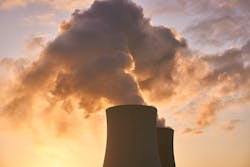South Korea Brings Fukushima Wastewater Issue to London Convention Meeting
South Korea’s Ministry of Oceans and Fisheries (MOF) deemed the danger of Japan’s contaminated water from the Fukushima Nuclear Power Plant as an international issue at a meeting to the London Convention.
The London Convention controls pollution of the seas and oceans by dumping and covers the deliberate disposal of wastes and other matter into the world's waters, according to the U.S. EPA. The discharged water will have a direct influence on the marine life and ecosystem in its territorial waters and eventually the people in Korea, according to the Korea Times.
As of Aug. 22, approximately 1.1 million tons of contaminated water is being stored in 977 tanks at the decommissioned power plant in Fukushima, which was destroyed by the 2011 earthquake and ensuing tsunami.
The Japanese government said recently it will only build more facilities through 2020, which will bring the total stored volume to 1.37 million tons, according to Science Page News. The storage facilities are projected to be filled by August 2020, which suggests that there will be no more tanks to hold the 170 tons of radiation-contaminated water created daily.
“If [Japan] does release contaminated water from the plant into the ocean, this could have an impact on the global oceanic environment and be in violation of the aims of the London Protocol,” said Song Myeong-dal, MOF ocean environment policy officer and senior South Korean representative. “In order to find a method of contaminated nuclear power plant water handling that the international community can be confident is safe, I think this matter should be discussed on an ongoing basis by the consultative meeting of contracted parties to the London Convention and Protocol.”
In response, a representative of the Japanese government said that the matter was not something to be discussed by the consultative meeting and that the international community would be kept informed about the process, reported the Hankyoreh.
"There is another option to deal with radioactive water. Japan can keep it in the tanks until the radiation level becomes low enough. But this takes time and money. It will take about 300 years until it is okay to discharge the water," said Kim Ik-jung, a former medical professor and member of the Nuclear Safety and Security Commission to the Korea Times.
South Korea plans to continue to raise the wastewater issue to the international community until Japan comes up with a safe and acceptable solution, according to the Hankyoreh.
Read related content:
